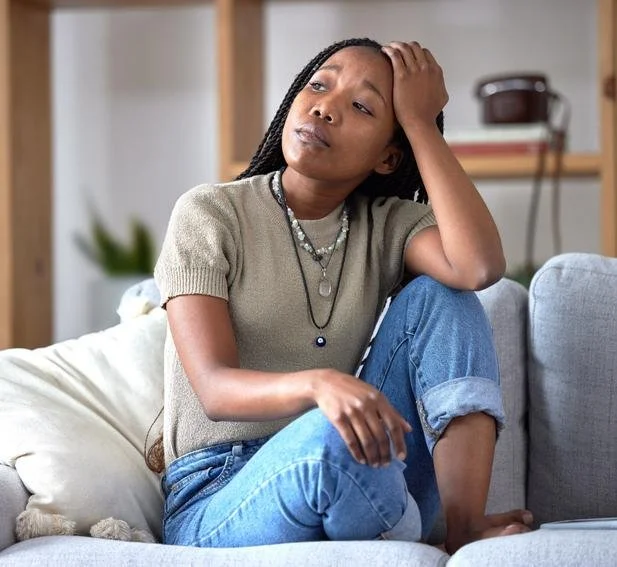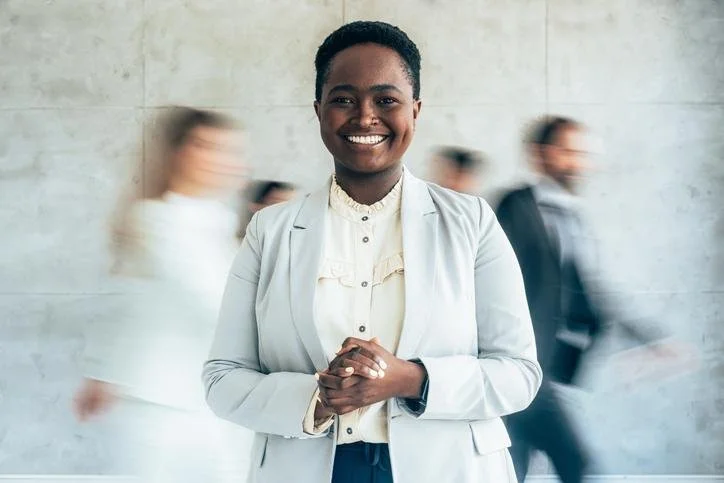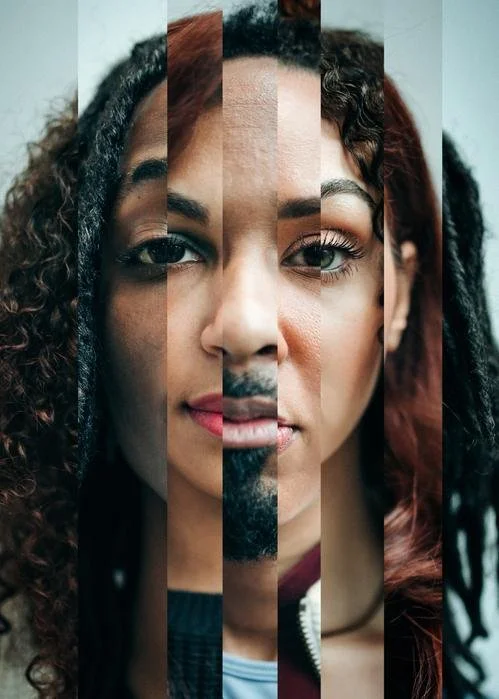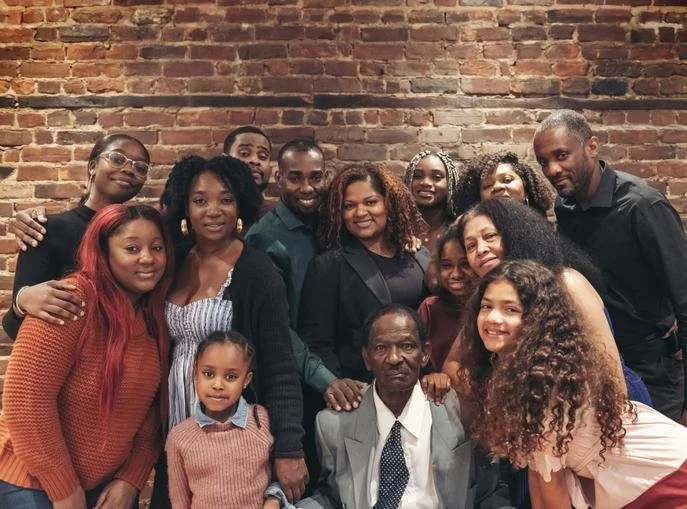When Grief Is Complicated: Mourning Someone You Weren’t Close to Anymore
Mourning someone you weren’t close to anymore can bring complicated grief marked by guilt, confusion, and unresolved emotions — a deeply human experience that deserves space, honesty, and healing. We discuss it here!
Photo Credit: PeopleImages via iStockPhoto.com
By: Jamila Gomez
Grief doesn’t always arrive in the form we expect. Sometimes, it shows up quietly — not with tears and flowers, but with confusion, tension, and a subtle ache that lingers in the chest. This is what complicated grief often looks like — especially when mourning someone you had a strained, distant, or unresolved relationship with.
When someone passes away, society expects a certain kind of response. We’re supposed to remember only the good. We’re supposed to show up in mourning clothes with clean emotions and shared memories. But what about the people we weren’t close to anymore? The ones we had history with, but also hurt, distance, or emotional friction? What happens when someone passes before there’s been a chance to reconcile, repair, or even fully process what the relationship meant?
That kind of grief hits differently.
It brings with it a heavy blend of emotions — sadness, guilt, regret, relief, confusion. Sometimes the connection was real, but fractured. Sometimes it never quite healed. And now the opportunity for understanding, clarity, or closure is gone.
For many people in the Black community, these emotional complexities are even harder to name out loud. There’s pressure to stay composed. To be strong. To not speak ill of the dead. But grief doesn’t follow those rules. Especially not when there’s unfinished business.
Complicated grief might sound like:
“I cared about them, but I’m not sure I liked who they were to me.”
“We used to be close, and then we weren’t… and now I don’t know how to feel.”
“I wanted to reach out, but I didn’t know how. And now I can’t.”
All of that is valid. Mourning someone you weren’t close to anymore is still grief. It still deserves tenderness.
So what can be done with these feelings?
We start by telling the truth. By giving ourselves permission to grieve without needing it to look perfect. By honoring the bond for what it was — not what we wish it could’ve been. And by remembering that complexity doesn’t make the loss less real. It just makes it more human.
To anyone holding this kind of grief: You don’t owe anyone a neat story. You don’t need to explain why it hurts. You’re allowed to feel it all — even when it doesn’t make sense.
That, too, is a form of healing. And that, too, deserves space.
YOU MAY ALSO BE INTERESTED IN:
SHARE TO SOCIAL MEDIA
Polished Ain't Protection
Respectability politics continues to harm Black communities by promoting conformity over authenticity, reinforcing systemic racism, and dividing us based on outdated standards of acceptability. We discuss it here!
Photo Credit: filadendron via iStockPhoto.com
By: Jamila Gomez
Respectability politics has been lurking in our conversations for generations. You know the vibes: “Pull your pants up,” “Speak properly,” “Don’t act ghetto.” It’s that belief that if we just present ourselves the “right” way—dress a certain way, talk a certain way, follow all the rules—we’ll be treated with dignity and respect.
But let’s be real: has that ever truly worked?
Respectability politics was born out of survival. Back in the day, our grandparents and great-grandparents navigated a violently racist society by trying to fit into the mold that white America deemed “acceptable.” It was a strategy. If they could just prove they were “good” and “decent,” maybe they could avoid the worst of what white supremacy had to offer. It was a coping mechanism, and in a way, it made sense—when your very life is on the line, you do what you have to do.
But here’s the thing: no amount of code-switching, Sunday-best outfits, or Ivy League degrees has ever stopped racism. Look at how they treat us—whether we’re in hoodies or three-piece suits. The truth is, systemic racism doesn’t care how polished you are. Sandra Bland was college-educated and articulate. Barack Obama was President. They still faced disrespect and worse. So what are we really gaining by clinging to respectability?
More importantly, it creates division within our community. It tells us that some Black people are “better” than others based on how closely they align with whiteness or “mainstream” standards. That’s dangerous. It turns us against each other instead of standing together against the real enemy: the system that devalues Black lives across the board.
We’re not a monolith. We are diverse, vibrant, and full of contradictions—and that’s beautiful. We have the right to be ratchet and refined, hood and scholarly, spiritual and secular. All of it is valid. None of it makes us less worthy of dignity, safety, or justice.
So maybe it’s time we leave respectability behind. We don’t need to shrink ourselves or conform to be worthy of basic human rights. The revolution will not be polite—and it shouldn’t have to be.
Let’s love on each other in all our forms. Let’s uplift the aunties with the loud nails, the queer cousins, the kids with grills and dreams. Because we all deserve to be free—not just the ones who “fit in.”
YOU MAY ALSO BE INTERESTED IN:
SHARE TO SOCIAL MEDIA
Confronting the Enemy Within: Challenging Anti-Blackness Across the Diaspora
Confronting anti-Blackness within the global Black community is essential for healing, unity, and building solidarity through truth, empathy, and accountability. We discuss it here!
By: Jamila Gomez
Anti-Blackness within our communities is one of those conversations that makes family dinners uncomfortable and Twitter timelines explosive. But it’s necessary. Anti-Blackness isn’t just external—it can thrive quietly within our own circles, shaping interactions and opportunities among us.
At its root, anti-Blackness within the diaspora is tied to colonialism and slavery. From Brazil to Jamaica to the United States, centuries of conditioning taught us to internalize colorism and hierarchies based on proximity to whiteness. We often unconsciously reproduce these biases within our families, churches, schools, and workplaces.
Think about the aunties who praise lighter skin or looser curls, or families discouraging their kids from playing outside for fear of getting “too dark.” It shows up in derogatory jokes about Haitians or Africans made by Black Americans and Caribbeans. It’s in how Afro-Latinos often find themselves invisible or dismissed in conversations about Latin identity. This behavior doesn’t happen in isolation—it’s a painful manifestation of deeply ingrained beliefs about what it means to be acceptable, respectable, or successful.
The first step toward healing is acknowledging the harm done. As a community, we need honest dialogue about how anti-Blackness influences our interactions and perceptions. Yes, the legacy is painful, but denying its existence won’t liberate us from its grip.
It’s also important to understand that confronting anti-Blackness doesn’t mean we’re creating divisions. Quite the opposite: acknowledging these tensions can help us unify authentically. Solidarity is stronger when it’s rooted in truth, respect, and accountability. This starts with calling out problematic behavior, even when it comes from loved ones or respected community members.
We should also uplift voices and experiences from across the diaspora. This means intentionally creating spaces where darker-skinned, marginalized members of our community can lead and be heard without the filters of colorism or prejudice.
Cultural education and self-reflection are key. Learning about the diversity of our Black experiences globally helps dismantle stereotypes and confront internalized racism. It reminds us of our shared history, struggle, and potential strength in unity.
Finally, dismantling anti-Blackness within our diaspora is critical to fighting broader systemic racism. Our strength as a global Black community is amplified when we confront these issues head-on. We’re powerful individually, but unstoppable together.
Let’s continue the difficult conversations. Let’s keep challenging each other with love, empathy, and accountability. Because our liberation as a collective depends on rooting out anti-Blackness, not only in society but within ourselves first.
YOU MAY ALSO BE INTERESTED IN:
SHARE TO SOCIAL MEDIA
“That’s My Cousin”: The Power of Cousin Bonds in the Black Community
In the Black community, cousin relationships go beyond bloodlines, serving as lifelong bonds of friendship, support, and shared cultural identity that shape our earliest memories and hold families together. We discuss it here!
Photo Credit: lisegagne via iStockPhoto.com
By: Jamila Gomez
In the Black community, “cousin” doesn’t just mean your mama’s sister’s kid. It’s deeper than blood. It’s a bond, a lifeline, a whole experience. For so many of us, cousins are our first best friends, our first partners-in-crime, and sometimes the only people who understand the full flavor of what we’re going through. In a world that often tries to break us down, cousin relationships build us up.
Growing up, cousins were the ones we sat at the kiddie table with during Thanksgiving, sneaking extra rolls and giggling through family gossip. They were the ones we shared rooms with during summer breaks, staying up late talking about everything from cartoons to crushes. Cousins helped us learn how to roast, how to play spades, how to braid hair, how to defend ourselves — and how to laugh through pain. That bond doesn’t fade with time. If anything, it gets stronger.
And let’s be real: in many Black families, the cousin network is what holds the whole structure together. We may not always come from traditional nuclear homes, but our families are rich with aunties, uncles, Big Mamas, and cousins who step up, show out, and show love. Your cousin might’ve been your babysitter, your ride to school, your first call after a breakup. They’re your people — your tribe — when the world gets cold.
Cousins often grow up like siblings, especially in households where resources were tight and love had to stretch wide. That closeness builds a unique understanding, an unspoken language that even your closest friends might not get. You share memories, music, inside jokes, and sometimes trauma. But the beauty is in how cousins help you carry it — laughing, praying, healing together.
In today’s world, where everything moves fast and people feel more disconnected than ever, those cousin ties are sacred. They remind us where we come from. They keep us grounded. And for the next generation, it’s up to us to keep that spirit alive — making sure our kids know their cousins, grow with them, and love them like we did.
So when we say, “That’s my cousin,” it’s not just a label. It’s pride. It’s history. It’s love.
Hold your cousins close. Call them. Check on them. Celebrate them. Because in this community, cousin love is family love — and family is everything.







